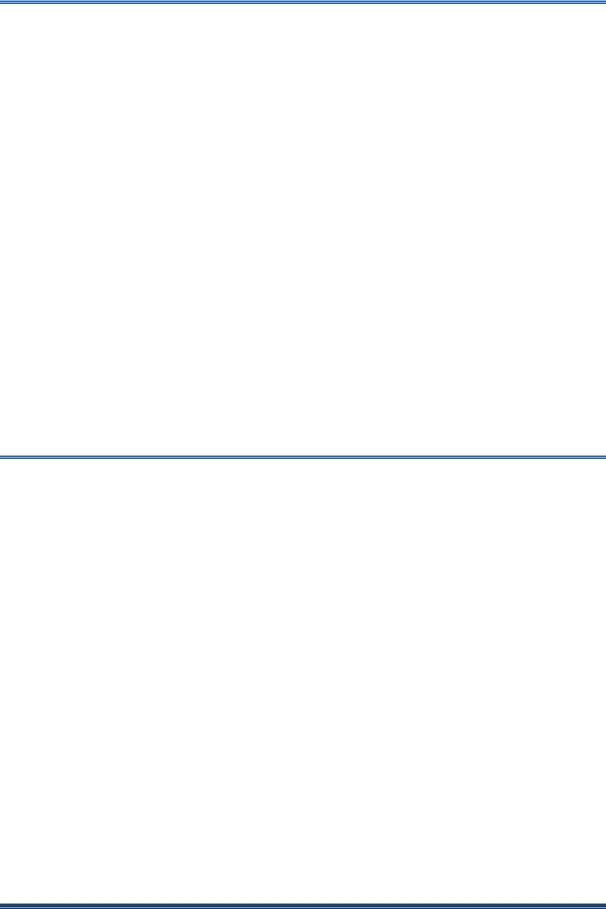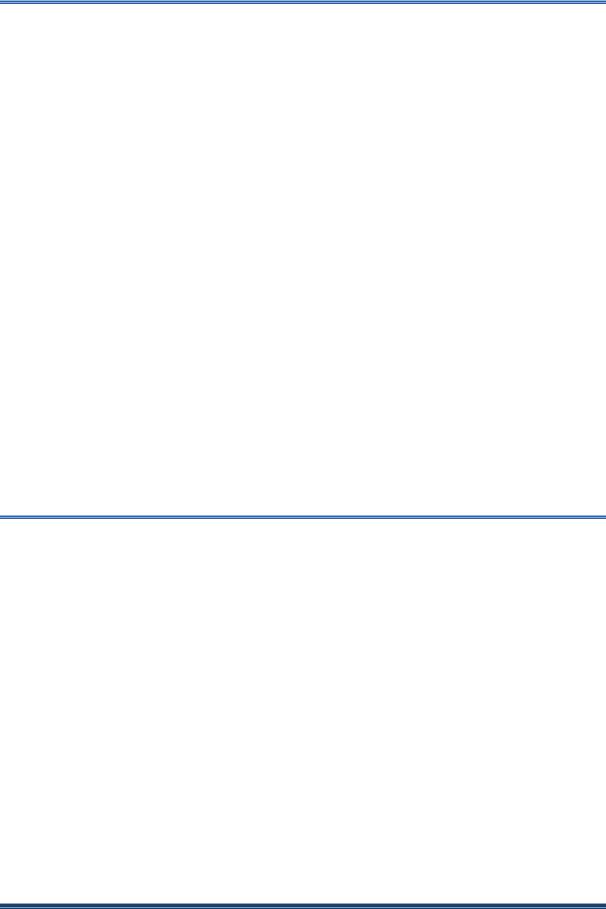
50-common-English-phrasal-verbs
.pdf
READ OUT
To read out something (or read something out) is to read the words and say them so that people can hear you.
Examples of use:
a)Simon, can you read the instructions out for me, please?
b)She read out the names of the winners.
infinitive |
read out |
present simple |
read out and reads out |
-ing form |
reading out |
past simple |
read out |
past participle |
read out |
RELY ON / UPON
1. To rely on (or rely upon) somebody or something is to trust someone or something to do what you need or expect them to do.
Often + to do something.
Examples of use:
a)I'm relying on you not to drop me!
b)Can I rely on you to keep my secret?
c)We need someone we can rely on to manage the business for us.
d)I wish I could rely on my train arriving on time.
e)I'm relying on my students to finish their English homework this week.
f)We're relying on our old car to get us to the airport on time
g)You can rely on Jasmine.
©Angela Boothroyd www.online-english-lessons.eu and www.studyingonline.co.uk |
Page 31 |

2. To rely on (or rely upon) somebody or something is to need or depend on someone or something in order to work correctly, to succeed, or to survive.
Examples of use:
a)We rely on our son to do our food shopping for us.
b)He relies on the income from his writing for paying his bills.
c)Our elderly neighbour relies on her children for help.
d)I'm relying on all of you to work hard and make this team a success.
e)The English students relied on their teachers to help them pass their English exams.
f)Our business relies on government contracts.
Rely upon is a little more formal than rely on.
infinitive |
rely on / upon |
present simple |
rely on / upon and relies on / upon |
-ing form |
relying on / upon |
past simple |
relied on / upon |
past participle |
relied on / upon |
©Angela Boothroyd www.online-english-lessons.eu and www.studyingonline.co.uk |
Page 32 |

RUB OUT
To rub out something (or rub something out) is to remove writing from a surface by rubbing or wiping it with an eraser or a piece of cloth.
Examples of use:
a)I made a mistake so I rubbed it out.
b)You've made a spelling mistake here. Rub it out and correct it, please.
c)Can you rub out the writing on the board, please?
infinitive |
rub out |
present simple |
rub out and rubs out |
-ing form |
rubbing off |
past simple |
rubbed off |
past participle |
rubbed off |
RUN OUT (OF)
1. To run out of something is to use all of it so that there is nothing left.
Examples of use:
a)I've run out of bread.
b)We can't have coffee this morning because we've run out of milk.
c)I ran out of petrol on my way to work this morning.
d)News headline: Fresh water supplies are going to run out
e)We’re running out of orange juice. I’ll buy some more today.
Run out has other meanings.
©Angela Boothroyd www.online-english-lessons.eu and www.studyingonline.co.uk |
Page 33 |

infinitive |
run out of |
present simple |
run out of and runs out of |
-ing form |
running out of |
past simple |
ran out of |
past participle |
run out of |
SAVE UP
To save up something (or save something up) is to keep money so that you have enough to buy something in the future.
Examples of use:
a)We are saving up for a house.
b)You will have to save up if you want to buy that expensive car.
c)He saved up for a year for a new motorbike.
d)She saved her allowance up to buy a ticket to see her favourite band.
infinitive |
save up |
present simple |
save up and saves up |
-ing form |
saving up |
past simple |
saved up |
past participle |
saved up |
Practise your English and write a sentence using this phrasal verb. Think of a suitable response to this statement using the phrasal verb save up.
6. I would love to buy a new car but I can’t afford it.
________________________________________________________
©Angela Boothroyd www.online-english-lessons.eu and www.studyingonline.co.uk |
Page 34 |

SELL OUT
To sell out of something is to sell all of it and have no more left for people to buy.
Examples of use:
a)Their designer shoes are beautiful, but they have sold out in my size.
b)We're selling out of iPhones very fast. We must order some more.
c)I'm sorry. We have sold out of tickets for the show.
d)He sells out of his homemade cakes every day.
When all the tickets to a play, film, concert, or other public performance have been sold the event is sold-out (adjective)
Example of use: We tried to buy tickets for their concert but it's sold-out.
sell-out (noun) - when all the tickets to an event have been sold it is a sellout.
Example of use: Take That start their sell-out tour on Monday.
When all the items for sale in a shop have been sold they are sold-out (adjective)
Example of use:
Q.Could I buy one of your chocolate cakes, please?
A.I'm sorry. They are all sold-out.
|
infinitive |
sell out |
|
|
|
present simple |
sell out and sells out |
|
|
|
-ing form |
selling out |
|
|
|
past simple |
sold out |
|
|
|
past participle |
sold out |
|
|
|
|
|
|
|
|
|
|
|
|
|
©Angela Boothroyd www.online-english-lessons.eu and www.studyingonline.co.uk |
Page 35 |
|
|

Practise your English and write a sentence using this phrasal verb. Think of a suitable response to this question using the phrasal verb sell out.
7. Do you have these shoes in size 8?
I’m sorry;_______________________________________________
SET OFF
1.To set off is to start a journey. Examples of use:
a) What time are we setting off? b) They set off for home.
c) There are roadworks on the motorway so you'd better set off early. d) He set off from Paris last Sunday.
e) We set off for London with only £20 in our pockets.
f) I'm looking forward to setting off on my summer holiday.
2.To set off something (or set something off) is to cause something to start or happen.
Examples of use:
a)The loud music set off the baby's crying.
b)The proposed wage cuts set off a work-to-rule.
c)He came home with lipstick on his collar and this set off a huge argument.
d)News headline: Nick Clegg is about to set off an almighty row over universities.
3. To set off something (or set something off) is to cause something to explode or start to ring loudly.
©Angela Boothroyd www.online-english-lessons.eu and www.studyingonline.co.uk |
Page 36 |

Examples of use:
a)The smoke from the fire set off the smoke alarm.
b)They set a bomb off outside the building.
c)A spark set off the fireworks.
infinitive |
set off |
present simple |
set off and sets off |
-ing form |
setting off |
past simple |
set off |
past participle |
set off |
SETTLE DOWN
1. To settle down is to start living in a place where you plan stay for a long time, especially after living in many different places or travelling a lot.
Example of use:
I worked in many different countries when I was younger, but I came back to the UK in 2005 and settled down and got married.
2. When two people settle down together they set up a life together and perhaps get married, buy a house and start a family.
Example of use:
a)Alice and Peter are settling down and buying a house together. They are getting married in June.
b)They make a lovely couple. I hope they settle down together.
3. To settle down is also to become calm and quiet.
©Angela Boothroyd www.online-english-lessons.eu and www.studyingonline.co.uk |
Page 37 |

Examples of use:
a)I wish the children would settle down and go to sleep- I'm exhausted!
b)Settle down class, and get your books out. Today we're going to learn about phrasal verbs.
c)There was a fight between the rival football fans but the situation has settled down now.
infinitive |
settle down |
present simple |
settle down and settles down |
-ing form |
settling down |
past simple |
settled down |
past participle |
settled down |
SHOW OFF
1. To show off is to try and make people notice and admire you in a way which is annoying.
Examples of use:
a)Stop showing off!
b)He’s always showing off in the classroom and getting into trouble.
2. To show off somebody or something (or show somebody or something off) is to display it proudly.
Examples of use:
a)John showed off his new toy to his grandparents.
b)We were invited to their house so they could show off their valuable paintings.
c)She showed off her new pearl necklace to her work colleagues.
©Angela Boothroyd www.online-english-lessons.eu and www.studyingonline.co.uk |
Page 38 |

d) Oh no! Here comes our neighbour showing off his new car.
show-off (noun) - somebody who shows off
infinitive |
show off |
present simple |
show off and shows off |
-ing form |
showing off |
past simple |
showed off |
past participle |
shown off |
SORT OUT
1. To sort out something (or sort something out) is to organize or arrange things which are untidy.
Examples of use:
a)My bookcase is in a mess. I need to sort out my books.
b)Your room is very untidy. Sort out your clothes and put them in your cupboard, please.
2. To sort out something (or sort something out) is also to resolve a problem or misunderstanding.
Examples of use:
a)I had a problem with my car brakes but my brother sorted them out.
b)If my parents have any trouble with their computer their neighbour always sorts it out for them.
c)Will you two stop arguing and sort out your disagreements?!
©Angela Boothroyd www.online-english-lessons.eu and www.studyingonline.co.uk |
Page 39 |

3. To sort out something (or sort something out) is to discuss it with someone and make a decision about what to do.
a)We need to sort out the arrangements for our holiday.
b)Let's sit down and sort out the guest list for the wedding.
infinitive |
sort out |
present simple |
sort out and sorts out |
-ing form |
sorting out |
past simple |
sorted out |
past participle |
sorted out |
TAKE UP
1. To take up something (or take something up) is to start doing a particular, activity, job or hobby etc.
Examples of use:
a)My grandmother has taken up knitting.
b)I've recently taken up photography.
c)You're good at writing stories. Why don't you take it up as a career?
d)He took up stamp collecting when he was a boy.
2. To take up something (or take something up) is to shorten a piece of clothing, such as a dress or trousers.
Examples of use:
a)My new trousers are too long - I need to take them up.
b)My wedding dress had to be taken up 10cm.
©Angela Boothroyd www.online-english-lessons.eu and www.studyingonline.co.uk |
Page 40 |
